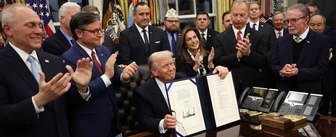Many dislike executive orders as a matter of principle, though that doesn't mean that the public opposes some of the most important orders in American history
President Obama’s use of an executive order to keep illegal immigrant parents of American citizens temporarily in the United States met with disapproval, even though more were in favor of the policy than not. Many felt he should not take the action on his own, but should have waited for Congress to act – even though most don’t expect Congressional action any time soon. This distaste for solo executive orders in principle extends far beyond the issue of immigration: many in the latest Economist/YouGov Poll oppose them in principle.
That’s particularly true for Republicans, many of whom are adamant about not permitting executive actions – even for mundane changes in administrative issues – without Congressional approval. The partisan divide seen in so many poll questions extends to principles that are now seen as partisan. Nearly all of the examples of solo executive actions offered in the Economist/YouGov Poll were of executive orders issued by Republican President George W. Bush, though this was not specified. Republicans were consistently less likely than Democrats to support these actions, with the exception of ordering reserves to active duty. In that case a plurality of both Republicans and Democrats say a President should be able to do that.
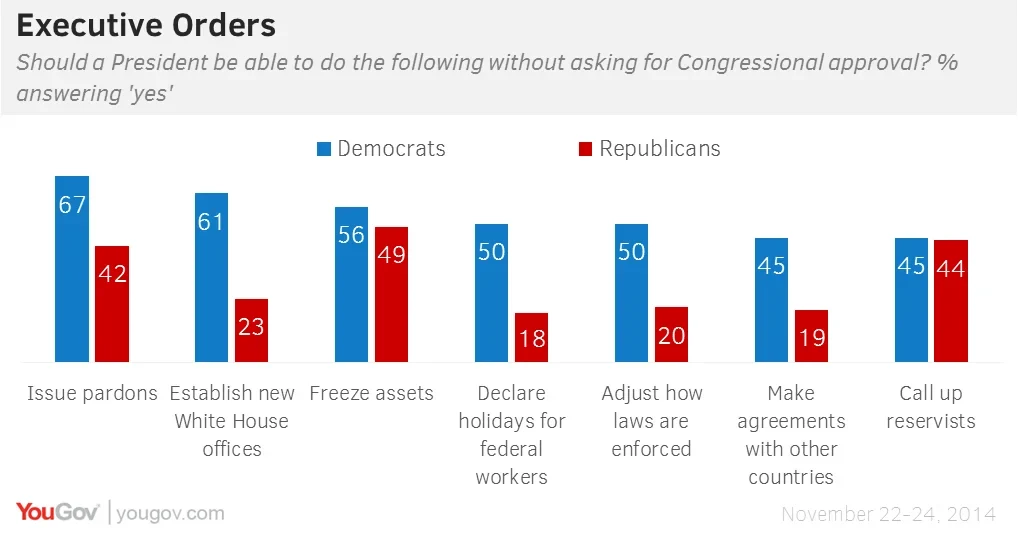
The only action favored by a majority overall was issuing presidential pardons; less than half supported all the other actions. Just 38% approved of President Obama’s executive order staying deportation proceedings against parents of American citizens; 45% disapproved.
Many Americans don’t know what to make of executive orders. One in five overall (and nearly twice as many Republicans) say they are unconstitutional. Just over a quarter say they are constitutional.
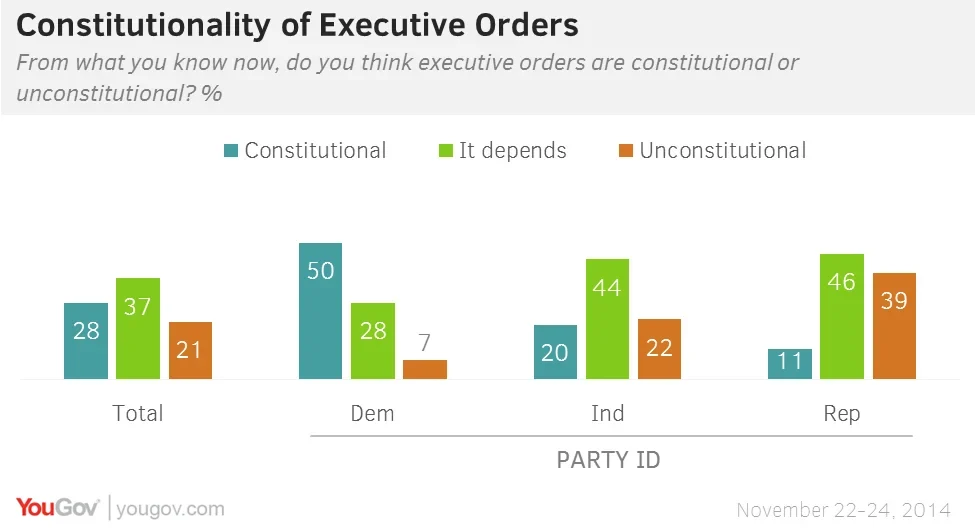
But what this means is unclear. Later in the questionnaire (after being asked the list of executive orders above), the public divided evenly on whether or not they approve of Presidents using executive orders. But the partisan differences remained. Two-thirds of Democrats approved of Presidents using executive orders, compared with just 18% of Republicans (71% of Republicans disapproved). Those results were similar to those found in February, and so predated the President’s latest order.
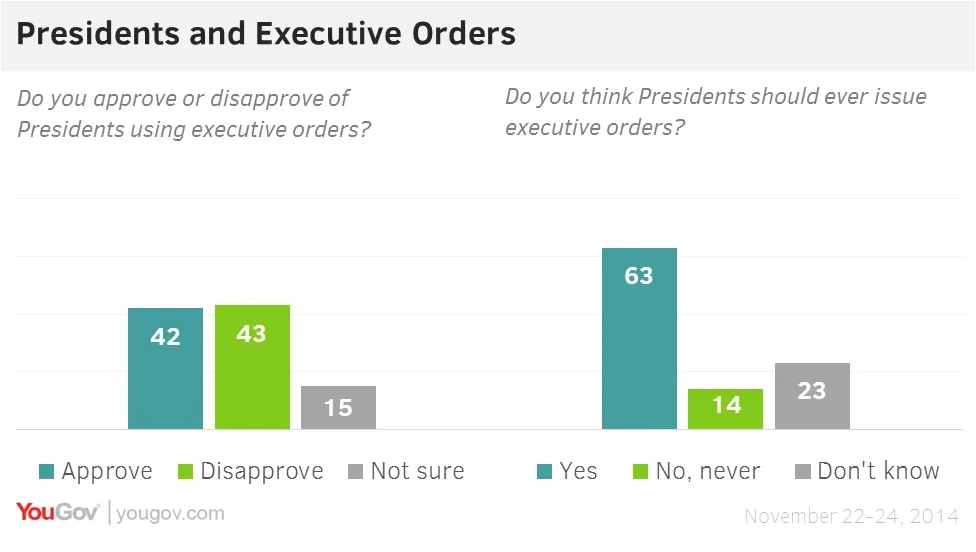
The public was even more supportive – at least to the concept of a president occasionally using an executive order -- after it was reminded of specific executive orders, including freeing the slaves in the parts of the country that was in rebellion (the Emancipation Proclamation) and the desegregation of the military. Republicans and Democrats agreed that these were appropriate executive orders.
But the percentages supporting the use of executive orders in the two popular historical cases has dropped a bit from February.
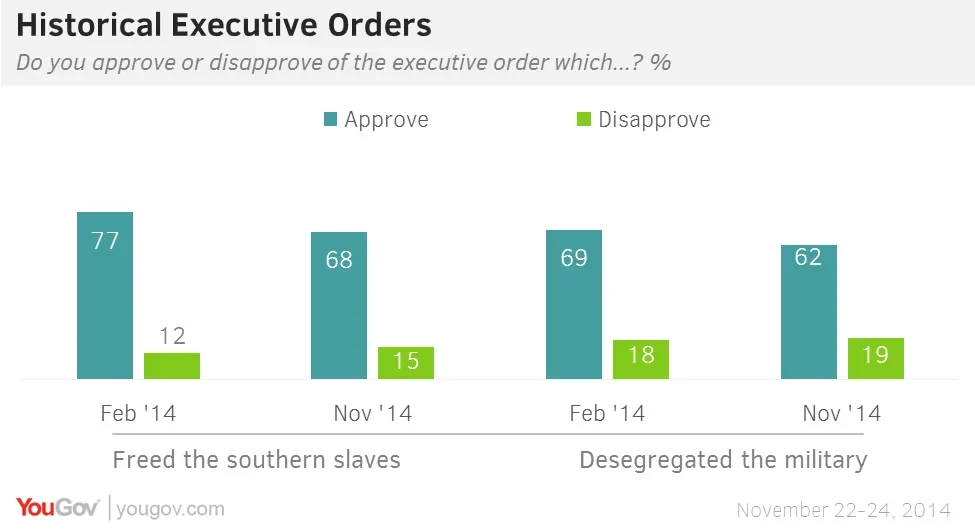
Just as was the case in February, Americans of all parties opposed the use of executive orders to do two things that are now looked at as mistakes: the internment of West Coast Japanese Americans during World War II, and the 1952 seizure of the steel mills during the Korean War. The Supreme Court validated the World War II internment executive order, but said the President lacked the authority to seize the steel mills.
At this point in his Presidency, George W. Bush had issued more executive orders than Barack Obama has. But the perception of executive orders has become so entangled with politics that Democrats and Republicans see history differently. Democrats and independents say President Bush issued more executive orders than President Obama by this point in the presidency, while Republicans say the current incumbent has issued more.
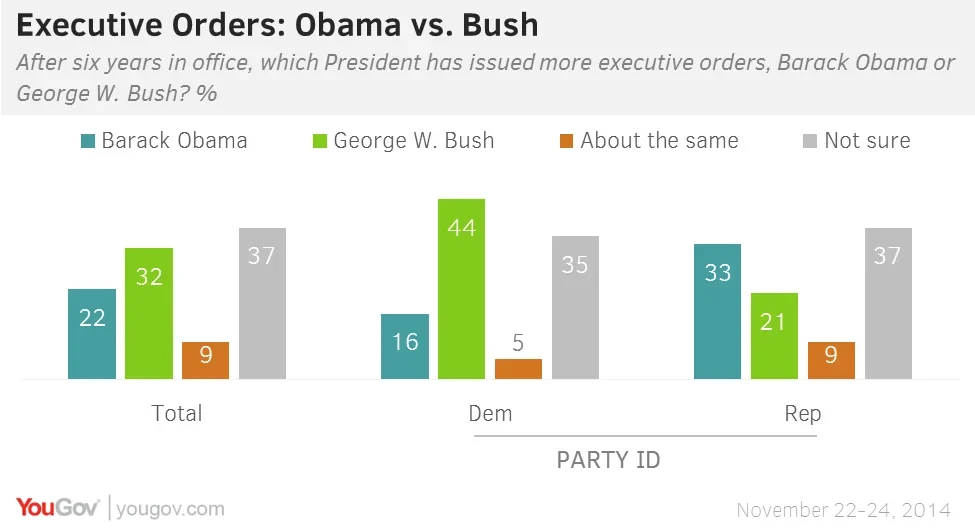
Economist/YouGov poll archives can be found here.








